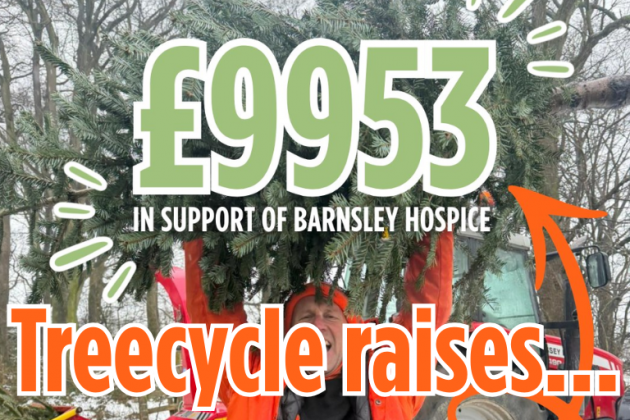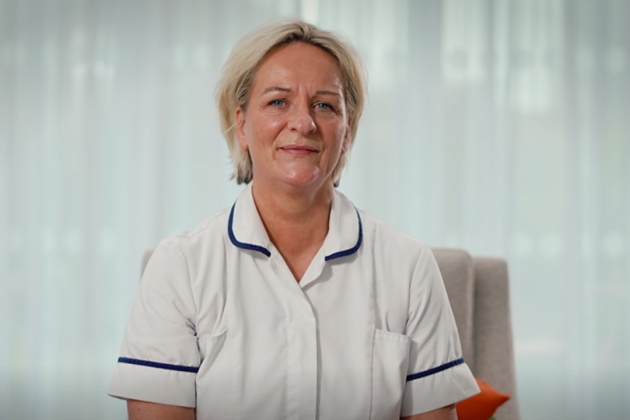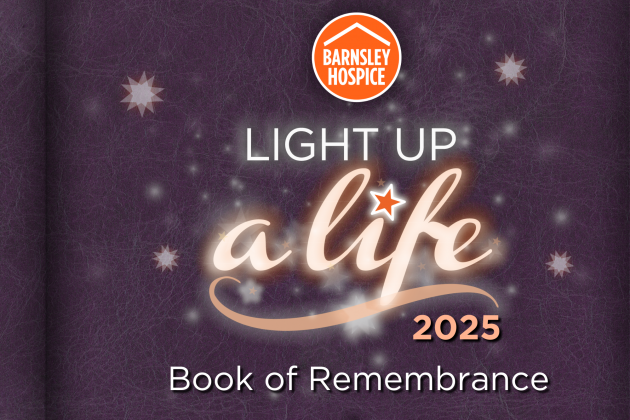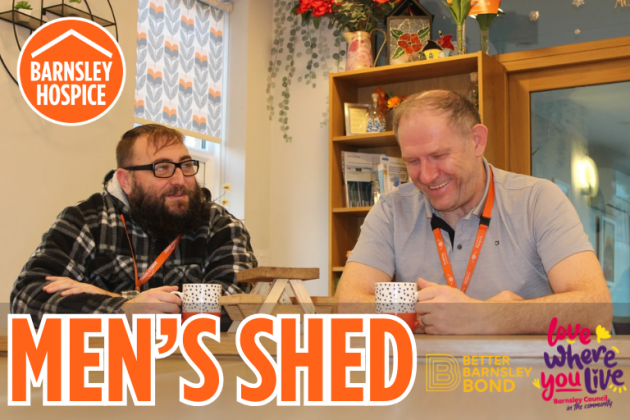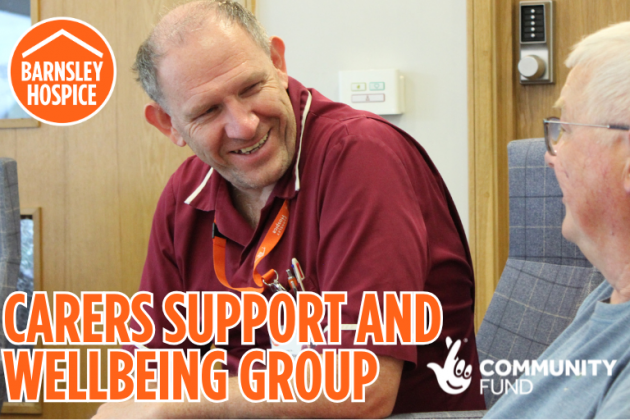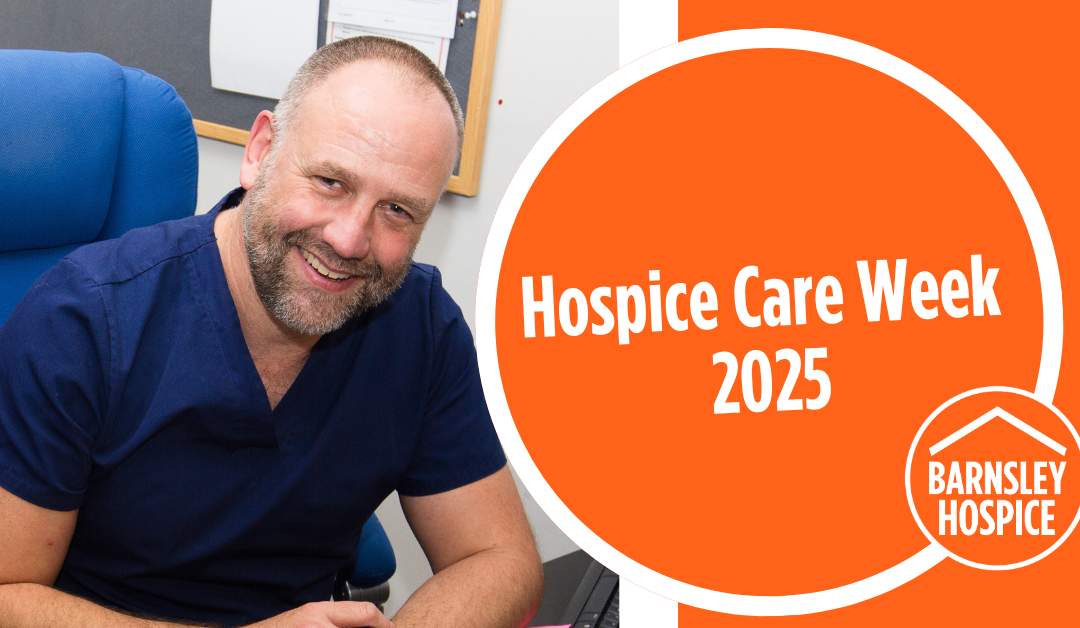
As part of Hospice Care Week, Dr David Stroud, Speciality Doctor at Barnsley Hospice, is sharing more about the difference hospice care makes, and why we need more sustainable funding.
Hello, my name is David Stroud. I am a Speciality Doctor working at Barnsley Hospice.
Having worked in different roles over the decades, I feel fortunate to have found a job which enables me to treat patients as people.
My daily work mostly involves seeing people who need us at the hospice Inpatient Unit; I also spend a lot of my working week supporting community nurse specialists provide palliative care in people’s homes (including 24-hour care homes), and I do home visits or clinic appointments to help with this. I think my background in general practice helps me to understand how to support those in the community delivering care.
As well as providing the medical cover for the community palliative care teams, we also provide the medical input for the palliative care nurses at our local hospital.
At the hospice, I am part of a skilled, multi-disciplinary team who work together to get to know new patients when they are admitted. I see this as a ‘deep dive’ with the patient and anyone important to them. This enables us to understand not only the medical issues but, more importantly, the wider context of the patient’s life, and how this and their medical issues affect each other.
A large part of my work involves enabling patients and those around them to make sense, with our support, of their journey to the hospice. It is common that people arrive here with multiple clinical teams involved, multiple prescribers, and a strong sense of bewilderment and exhaustion.
Trying to make sense of what has happened to them is often the first step in understanding what is happening now. This includes understanding how their disease is affecting them, what may – or may not – be medically useful in future management, what can realistically be achieved, and how we can support them, and those around them.
An honest, caring discussion about these issues is often the first part of future care planning with the patient. Often people will express relief that they have been able to have these discussions, and step off a ‘medical merry go round’ of admissions to hospital for potentially unpleasant treatments, with diminishing benefit. These is a sense of empowerment that I see in people when they realise that we are interested in what they want, and that the aim of treatment can shift away from unwanted medical interventions or admissions, to focusing on what is important to them.
Many of our patients can be discharged home from the hospice when symptoms are more controlled. Many do not, and die with us. Clear, compassionate discussions around death and dying- what to expect, how we can help look after them during this process, and a focus on what is important to them is key to providing care at this time, for the patient and those important to them.
Writing this has reminded me of how much I love this work and working with our team, despite its emotionally challenging nature. It requires specialist medical understanding applied through good communication skills, with the overarching imperative being the need to see the patient in front of me as a person, with all the context that brings.
It seems astonishing that caring for people in death and dying – along with birth, one of only two major transitions that are guaranteed to us all- is not funded in a way that reflects how important this transition is to the person, those around them, and the broader society and healthcare system. This healthcare system, as a result, ends up sometimes putting people through expensive and traumatising experiences because no one has asked the person in a meaningful way what they want. The Barnsley community has been and continues to be amazing in supporting us, and we really do feel part of the community because of this support, but fair funding for end of life care has also to come from the institutions of our society.
Will you help us secure our future so that we can care for more patients and support our local NHS? Please write to your local MP and ask for fair funding for Barnsley Hospice by visiting the Hospice UK website here: https://action.hospiceuk.org/hospice-care-much-more-than-you-think
You can find other ways to support the hospice on our Fundraise & Donate page.
